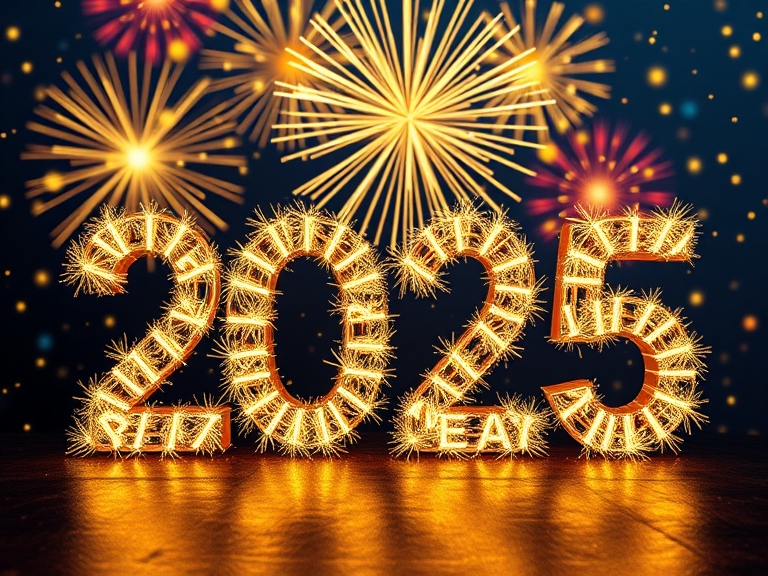The New Year is one of the most widely celebrated occasions worldwide, marking the beginning of a fresh chapter filled with hope, aspirations, and resolutions. But why is New Year celebrated, and what is the history of new year celebrations historical significance? Let’s explore the origins, traditions, and importance of this festive time.
Why Do We Celebrate New Year?
The New Year symbolizes a fresh start, allowing people to reflect on the past year and set goals for the future. It’s a time of:
- Reflection: Reviewing achievements, challenges, and lessons from the previous year.
- Renewal: Embracing the opportunity for growth and change.
- Celebration: Rejoicing with loved ones through parties, gatherings, and traditions.
For many cultures, New Year’s Day represents the start of a new calendar cycle, whether it’s the Gregorian, Lunar, or other traditional calendars.
The History of New Year Celebrations
1. Ancient Origins
- The earliest recorded New Year celebrations date back to 4,000 years ago in ancient Babylon. Babylonians marked the occasion during the spring equinox with a festival called Akitu, honoring the rebirth of the natural world.
- The Roman calendar initially celebrated the New Year in March until 46 BCE, when Julius Caesar introduced the Julian calendar, setting January 1 as the start of the year.
2. Adoption of January 1
- January is named after Janus, the Roman god of beginnings and transitions. Janus is often depicted with two faces: one looking back at the past and the other looking forward to the future.
- The Gregorian calendar, introduced by Pope Gregory XIII in 1582, solidified January 1 as New Year’s Day. Today, this calendar is used globally.
Significance of New Year Traditions
New Year’s traditions vary across the world, but many share common themes of renewal, hope, and joy. Some popular customs include:
- Fireworks and Celebrations:
- Fireworks symbolize the casting away of negativity and welcoming positive energy.
- Many countries host grand displays at midnight, lighting up the sky as the New Year begins.
- Making Resolutions:
- The practice of setting New Year’s resolutions stems from the ancient Babylonians, who promised their gods to repay debts and improve their behavior.
- Today, people set personal goals like improving health, advancing careers, or nurturing relationships.
- Special Foods:
- Eating specific foods is believed to bring luck and prosperity. For example:
- Black-eyed peas and greens in the southern United States.
- Twelve grapes in Spain, eaten at each stroke of midnight for good luck.
- Round fruits in the Philippines, symbolizing wealth and fortune.
- Eating specific foods is believed to bring luck and prosperity. For example:
- Cultural Rituals:
- In Japan, Ōtoshi-koshi soba (year-crossing noodles) are eaten for a long life.
- In Scotland, Hogmanay involves “first-footing,” where the first visitor of the year brings gifts to ensure good luck.
- In India, different regions celebrate the New Year according to their own cultural calendars, such as Ugadi or Baisakhi.
How to Celebrate New Year 2025
Here are a few ideas to make your New Year’s celebration memorable:
- Host a Party: Gather friends and family for a countdown to midnight.
- Reflect and Plan: Take time to write down your reflections on 2024 and set meaningful goals for 2025.
- Try a New Tradition: Incorporate cultural customs from around the world into your celebration.
- Give Back: Start the year on a positive note by volunteering or helping those in need.
Fun Facts About New Year
- More than 1 billion people watch the New Year’s Eve ball drop in Times Square, New York City.
- The first New Year’s Eve celebration in Times Square occurred in 1904.
- In Denmark, people leap off chairs at midnight to “jump” into the New Year.
- In Colombia, carrying an empty suitcase around the block is believed to bring travel opportunities.
Final Thoughts
New Year’s Day is more than just a calendar change—it’s a time for self-reflection, celebration, and hope. Whether you’re enjoying fireworks, setting resolutions, or learning about traditions from other cultures, the New Year offers a chance to connect with others and start fresh.
Here’s wishing you a happy, prosperous, and meaningful 2025!

